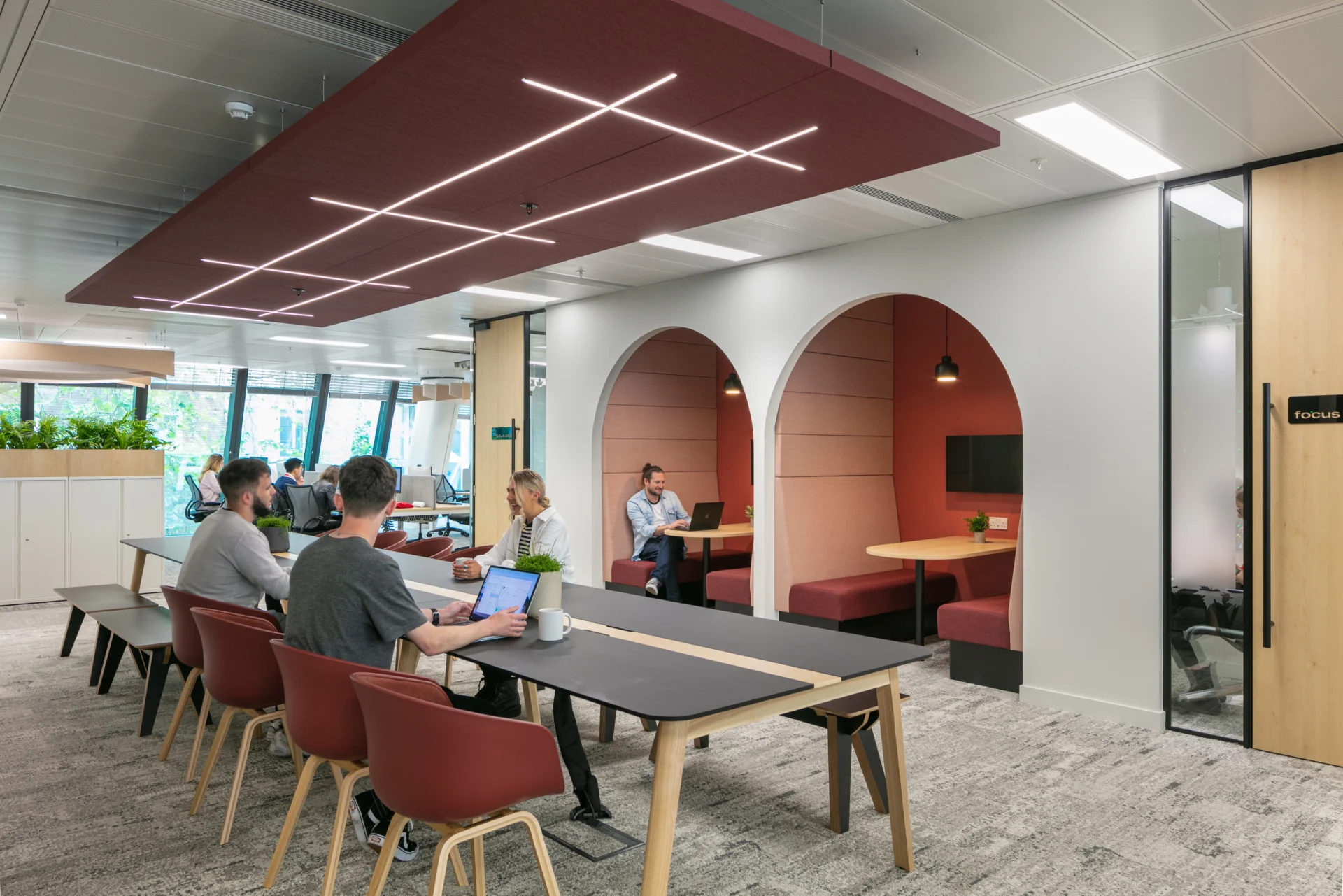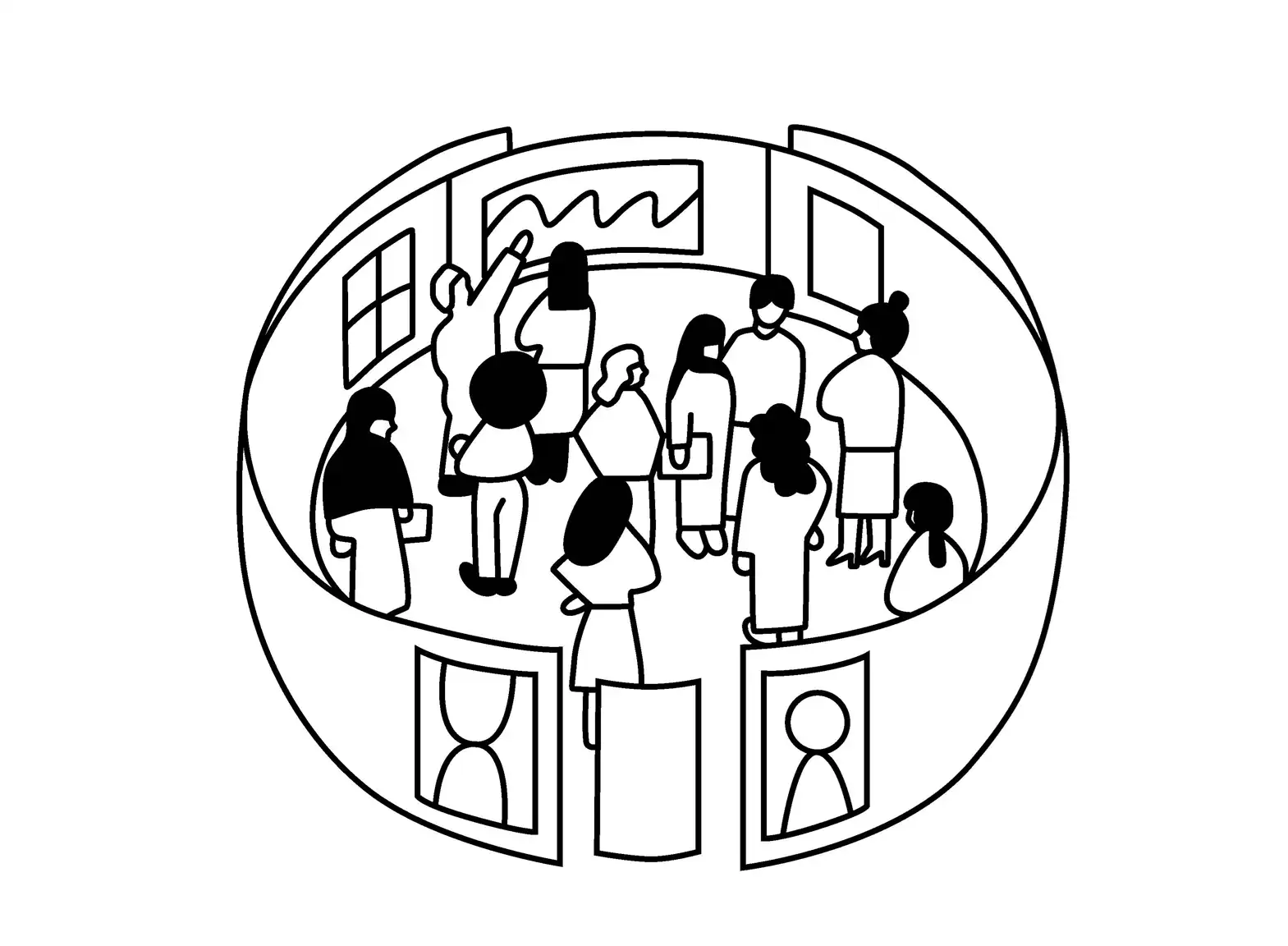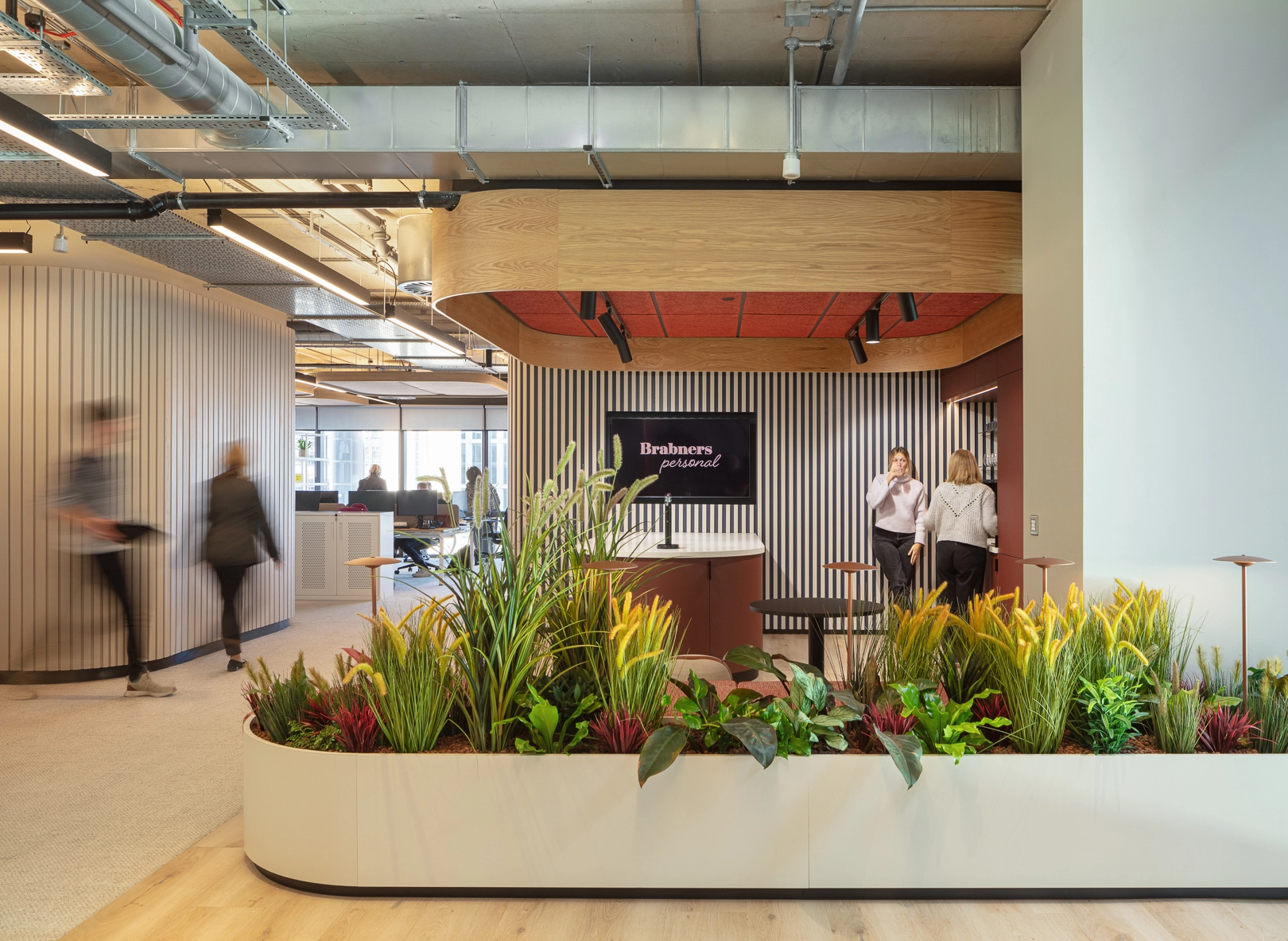Five workplace design trends for 2024
The conversations we’re having at a societal, national, and global level impact the aims, goals, and perspectives of our workplaces.
Over the past few years, we’ve grappled with various topics that have entered the conversation and changed how we approach things; from the impact of the pandemic on ways of working to the issue of climate change and its implications on all areas of life.
In the workplace specifically, we’ve seen mental health movements, diversity prioritised, and a strive towards work-life balance more than ever before. These fundamental shifts have had a profound impact on workplace design.
In 2024, we expect to see more workplace design trends evolve out of these changes in narrative. We believe that organisations are going to be taking learnings from these shifts to design workplaces that meet the needs of today’s employees.
Here are five workplace design trends to look out for…
1. Choosing smaller (but better) spaces
‘Efficient’ and ‘optimised’ workplaces will become a key priority in 2024 as organisations look to reduce their carbon footprint, save money and cater to hybrid working arrangements. Again, we’ll see more organisations taking a smarter approach to assessing occupancy patterns, using tech to monitor over- or underutilised spaces.
2. Co-creating a stand-out workplace experience
There has been a significant change in power dynamics within the workplace, and if employers are to attract and retain top talent, they will need to develop a workplace experience that aligns with their employees’ evolving needs and expectations.
Co-creation will be more important than ever in workplace design strategy – putting employees front and centre and tapping into the collective intelligence to create a more personal, inclusive and purposeful environment.

 3. Designing for adaptability
3. Designing for adaptability
Workplace rhythms and expectations will continue to evolve in 2024. From the early stages of design, organisations will need to consider how the workplace can adapt with ease. We’ll see more companies incorporating a blend of workplace settings rather than defining spaces according to conventional departmental functions such as marketing or IT.
4. Connecting a hybrid workforce
As more organisations adopt a hybrid working model and flexible practices, the need to drive productivity, innovation and communication across a dispersed workforce will become more prominent. In 2024, we’ll see a rise in tech-enabled workspaces that give people the tools they need to connect from anywhere while streamlining flexible working practices through desk-booking software.

5. Thinking beyond emissions
Businesses worldwide are racing to reach their net zero targets and improve their ESG performance. Efficient lighting, renewable heat sources and environmentally friendly materials will continue to be key considerations in workplace design, with more organisations using tech to monitor their energy and emissions usage.
We also anticipate organisations to take a more holistic approach and encompass wider aspects of sustainable interior design, such as waste, circular economy and employee wellbeing.
Read on to see how brands are transforming their workplaces to put these design trends into practice.
Selected industry experts bring you insight and expert advice, across a range of sectors.
Subscribe for free to receive our fortnightly round-up of property tips and expertise
Selected industry experts bring you insight and expert advice, across a range of sectors.
Subscribe for free to receive our fortnightly round-up of property tips and expertise



